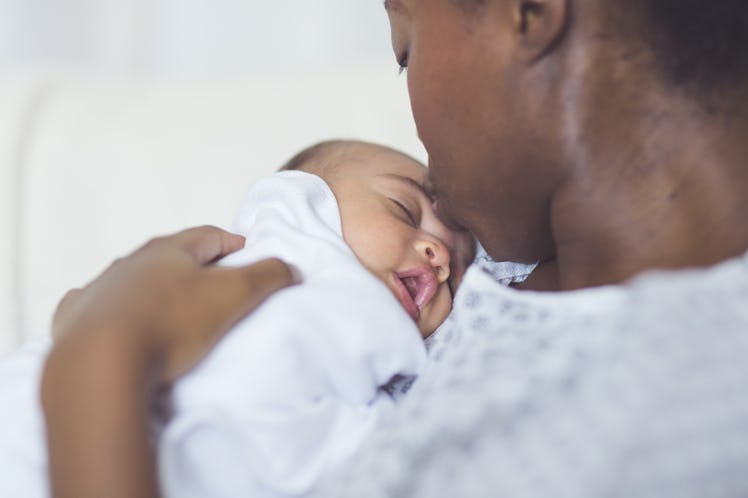The U.S. Is Failing Black Moms And Their Premature Babies
Black preemies are still dying at disproportionate rates in the U.S.

Despite being an economic leader, the U.S. ranks in the top 10 countries with the highest rates of preterm birth in the world. Being born preterm, or earlier than 37 weeks, puts a baby at risk of serious disability and death and is the leading cause of death for infants globally. A new study finds that there are extreme racial and socioeconomic disparities in the survival of premature babies, or preemies, in the U.S., and that these disparities aren’t getting any better.
For the study, published in JAMA Pediatrics, a team of British researchers examined data on more than 12 million infants who were born preterm between 1995 and 2020. They used data from the US National Center for Health Statistics Birth Infant/Death Dataset.
The researchers found that Black infants were 1.4 times more likely to die after being born premature than white and Hispanic infants. This gap in mortality of babies born prematurely to moms of different races stayed constant throughout the study period, even as the overall death rate of preterm infants declined — a sign that stark childbirth-related racial inequalities are still very much present in the U.S.
1.4x
How much more likely Black infants are to die after being born premature than white and Hispanic infants.
Whereas racial inequalities stayed constant, showing no improvement, socioeconomic inequalities actually worsened during the 15-year study period. The relative risk of death for preemies born to moms with a low educational level compared to a high level increased from 25% to 40%, and the relative risk for preemies of those who smoked compared to those who didn’t increased from 20% to 30%.
“While preterm infant mortality has improved in the US over the past 25 years, racial and socioeconomic inequalities still exist and are having a devastating effect on many families,” lead author Tim Venkatesan of the Great Ormond Street Institute of Child Health at University College London said in a press release.
One of the most important factors that contributed to preterm infant mortality risk was the level of prenatal care, the study found. Moms who didn’t receive adequate prenatal care were more than 50% more likely to have a preemie infant die than moms who did. “The findings from our study add support to calls for provision of free universal antenatal [prenatal] care for all pregnant Americans,” Venkatesan said.
The study authors suspect that much of this inequality in preterm infant mortality has to do with what happens before childbirth rather than after. They speculate that once preemies are born, they receive similar levels of care across racial and socioeconomic lines, and that improvement in medical care improved over the study period likely explains why survival gains occurred for all babies. But although there were medical advances in prenatal care too, only moms who were able to access this care would have seen further survival gains, which may be why the racial mortality gap held and the socioeconomic mortality gap widened.
The study results demonstrate that income inequality and systemic racism, particularly associated with childbirth, are alive and well in the U.S. today, adding to previous findings that, for example, even the wealthiest Black moms are more likely to die in childbirth than the poorest white moms.